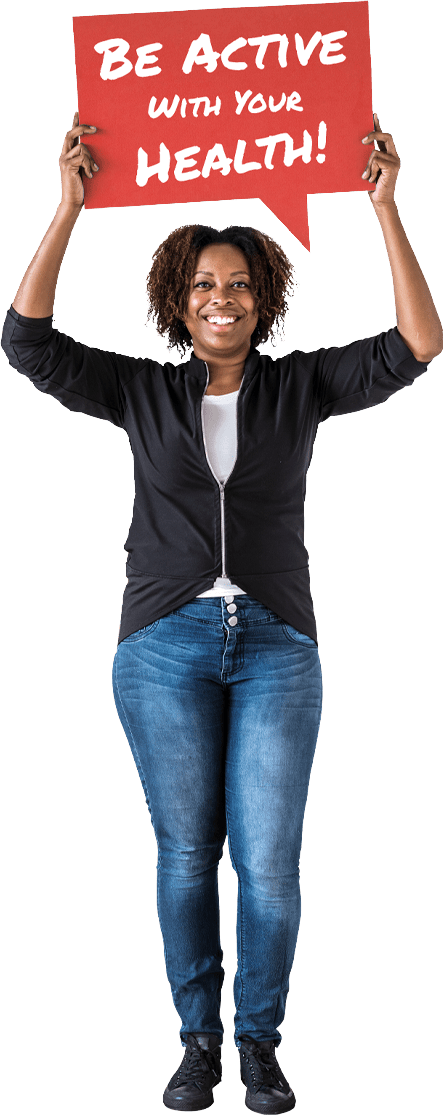What is Stress?
Life is stressful, we all know that, so with 2nd November being National Stress Awareness Day it is a good opportunity to raise awareness around stress, the different types of stress, and stress management techniques to help with the symptoms of stress.
Stress isn’t necessarily a bad thing. But too much or constant stress can really have an impact on our physical, mental, and emotional wellbeing. When we become stressed, we initiate what is called a ‘fight or flight response’, this physiological reaction has evolved from our caveman ancestors where the release of hormones prepares us to stay and fight the sabre-tooth tiger or run to safety. Today, it can be from stresses like an upcoming work deadline or family difficulties. During this response, the body focuses on increasing the necessary functions such as heart rate, breathing, blood pressure and muscle tension whilst decreasing the unnecessary functions like digestion, the feeling of relaxation and sleep.
Small amounts of stress over short time periods can be good, it can be the motivation to reach great milestones or help meet daily challenges – good stress is vital for a healthy life. We need physical stress to progress and cause adaptation in the form of strength, endurance and physical ability which can relate to general daily activities such as walking, taking the stairs, doing a physical job, or playing with your children. We need a little bit of mental stress too for cognitive function, this could be in the form of learning a new language, brain training, or writing a journal.
Research has found a positive correlation between acute stress and the generation of new nerve cells in the brain that can improve cognitive and mental performance. It is important to note however that this only occurs in small amounts of stress, chronic constant stress can have a negative impact on physical and cognitive function.
Stress is personal and therefore will display differently for everyone.

The Different Stress Symptoms and How They Can Present Themselves

Mental and Emotional Stress Symptoms
- Becoming easily agitated, frustrated or angry
- Low self-esteem
- Feeling overwhelmed
- Low mood or depression
- Withdrawn mood
- Difficulty concentrating
- Nervousness or anxiety
- Difficulty sleeping
- Change in appetite and eating habits
- Fatigue

Physical Stress Symptoms
- Headache
- Muscular tension – especially around the neck, shoulders, jaw
- Increased blood pressure and heart rate
- Sweating
- Gastrointestinal problems such as stomach ache, acid reflux, irregular bowel movements
- Nausea
- Lowered immunity – becoming ill more often
- Insomnia
- Restlessness

Chronic Stress Symptoms
When being faced with repeated stresses from work or daily life it will eventually have negative effect on the body over time. Chronic stress can increases the risk of:
- Chronic fatigue
- Sleep problems
- Decreased mood
- Memory and concentration impairment
- Weight gain
- Gastrointestinal problems
- Headaches
- High blood pressure
- Poor immune function
- Heart attack or stroke
How to Manage Stress Levels and it’s Symptoms
Sometimes stress can’t be avoided, but there are ways in which to manage the symptoms to try and calm the nervous system so that it can function most effectively.
Acknowledge the Stress
Firstly, acknowledging the stress can be the first step to becoming less stressed. Taking time to just stop and think about what you have going on in your life right now and writing down what is on your mind can really help. Making a to do list is helpful for some, but it shouldn’t be pages long, it should just include the top 3 to 5 things that are a priority to be done that day. Ticking off tasks that need to be done can be a good way to visually see what you have accomplished that day.

Exercise
Physical activity can help lower overall stress and improve quality of life. When people become busy, physical activity is one of the first aspects that gets pushed aside but I’m here to tell you to try and make it a priority for yourself! When we exercise, it promotes the production of endorphins – the feel-good hormone and reduces stress hormones involved in the fight or flight response which in turn improves the cardiovascular, digestive and immune systems. It also reduces muscular tension, helps promote relaxation and better sleep as well as increasing self-confidence and overall improving mood.
Exercise can be in the form of running, weight training, swimming, a sport you enjoy such as tennis or racquetball, cycling or even going for a nice walk in nature – the main thing is to pick an activity you enjoy.
So the next time you finish a long day at work and can’t be bothered to do exercise, just remind yourself of all these amazing reasons to do so… and trust me you won’t regret it!

Mindfulness Meditation
Taking time out of your day to just slow down and focus on your breath is a great stress management tool that can be used at any moment throughout the day. Essentially, meditation affects the body in the complete opposite way that stress does – by triggering the body’s relaxation response. It has been shown to reduce stress symptoms by lowering heart rate, improving focus, boosting immunity, and promoting better sleep.
Mindfulness meditation is a type of technique that involves deep breathing and awareness of the body and mind to make sense of the jumbled thoughts, let go of negativity and acknowledge how you feel. Daily practice of mindfulness over longer time periods has been shown to improve memory, slow down some neurodegenerative diseases like dementia and Alzheimer’s, reduce inflammation and promote better brain function.
There are many guided meditation videos on YouTube or free apps such as Calm or Headspace that can give you an insight into meditation and how to get started – all you need is a comfortable place to sit and 3 to 5 minutes.

Yoga
Yoga is another great way to manage stress – is it a combination of exercise and mindfulness so as you can imagine from the points above the benefits are great for both mind and body.
Hatha yoga is a common type of yoga practice that is known to help with stress management and is a great place to start for beginners. It enhances awareness, boosts concentration, and energises the brain. Like with meditation, if yoga is done regularly the affects have a greater impact over time.
If yoga is something that you’re interested in, at Move HQ where our Winnersh clinic is located they offer yoga taster sessions and various packages with different classes from beginners to more experienced levels.

Massage
Massage is a great way to promote relaxation and relieve stress. Many people, when stressed, carry a lot of tension through the shoulders and neck which can lead to pain, stiffness, and tension-type headaches. Massage uses many different techniques to directly ease the muscles whilst also promoting blood circulation and toxin drainage to improve immunity. It also triggers the relaxation response and boosts the release of ‘happy’ chemicals such as dopamine and serotonin which helps calm the nervous system, enhances overall mood, and improves sleep.
If muscular tension is something that you suffer with, we offer 30 minute and 60 minute deep-tissue massages at both of our Maidenhead and Winnersh clinics. Patients may need regular massages to remedy muscular tension, although you’ll start to feel the benefits after just one session.

Chiropractic
Chiropractic care can help ease the symptoms of stress through manipulations, mobilisations, and soft tissue techniques. The spine is literally the backbone of our neurological system, it communicates every function with the brain, whether its breathing or climbing the stairs. When we get stressed it causes tension throughout the body, so when we get adjusted, it releases the tension that has been built up within the nervous system which in turn eases muscular tension and increases circulation and nerve function. Using adjustments and mobilisations helps restore the natural movement within the joints, especially of the spine to reduce the reoccurrence of muscular pain and tension that is often associated with stress.
Active Health Clinics has great team of chiropractors that could help manage your symptoms of stress both emotionally and physically. We have chiropractors in both of our Maidenhead and Winnersh clinics. If chiropractic is something you’re interested in but not sure where to start, we offer a free 15-minute discovery consultation that can help you if you’re unsure whether chiropractic is the right choice for you.

Specialist Help
If you feel that your stress is starting to become unmanageable or it has got into a chronic stage then seeing a specialist can really help, whether it’s a therapist, counsellor or psychiatrist. They are trained professionals who can find ways to help you cope, reduce the effects of emotional stress, help you feel better and become more functional in your daily life.
To find a therapist or counsellor the Counselling Directory can help find the right person for you, whether it’s online or local.
Better Help is the largest online therapy platform in the world that can help you find an online therapist as well as get advice through a range of articles.
Start Implementing Stress Management Techniques With Our Active Support
Whether it’s starting chiropractic to release built up tension, having regular sports massages for relieving stress related symptoms, or taking on 1-1 personal training in our private gym, there are a number of stress management techniques we can help you with. Getting started with us is quick and simple. All you have to do is book a complimentary 15 minute consultation and we can best advise what treatment options will help you most.
The first step to owning your health
Unsure where to start or which practitioner to see? Book a Free 15 Minute Discovery Consultation to speak with one of our experts today.
15 minute consultations are about you. There’s no high pressure sales pitches, no catches or hidden fees & absolutely no obligation to book a treatment.

Associations














